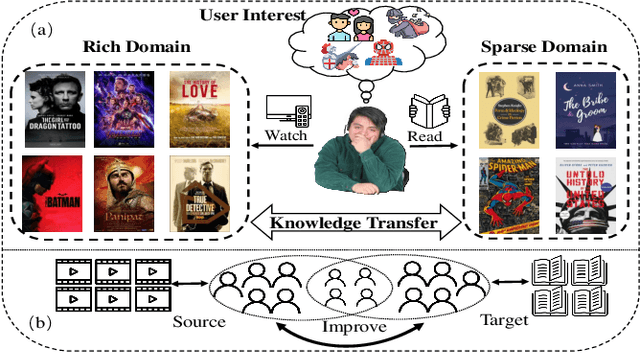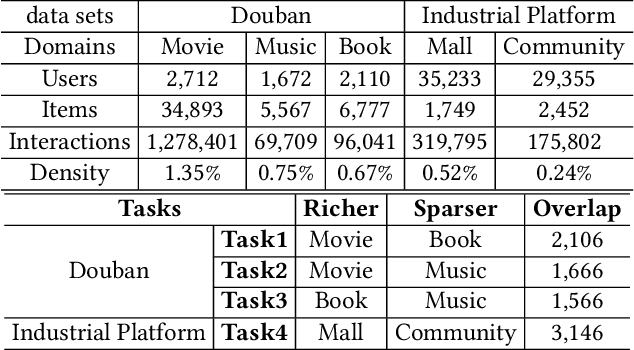Cross-domain recommendation via user interest alignment
Paper and Code
Jan 26, 2023



Cross-domain recommendation aims to leverage knowledge from multiple domains to alleviate the data sparsity and cold-start problems in traditional recommender systems. One popular paradigm is to employ overlapping user representations to establish domain connections, thereby improving recommendation performance in all scenarios. Nevertheless, the general practice of this approach is to train user embeddings in each domain separately and then aggregate them in a plain manner, often ignoring potential cross-domain similarities between users and items. Furthermore, considering that their training objective is recommendation task-oriented without specific regularizations, the optimized embeddings disregard the interest alignment among user's views, and even violate the user's original interest distribution. To address these challenges, we propose a novel cross-domain recommendation framework, namely COAST, to improve recommendation performance on dual domains by perceiving the cross-domain similarity between entities and aligning user interests. Specifically, we first construct a unified cross-domain heterogeneous graph and redefine the message passing mechanism of graph convolutional networks to capture high-order similarity of users and items across domains. Targeted at user interest alignment, we develop deep insights from two more fine-grained perspectives of user-user and user-item interest invariance across domains by virtue of affluent unsupervised and semantic signals. We conduct intensive experiments on multiple tasks, constructed from two large recommendation data sets. Extensive results show COAST consistently and significantly outperforms state-of-the-art cross-domain recommendation algorithms as well as classic single-domain recommendation methods.
 Add to Chrome
Add to Chrome Add to Firefox
Add to Firefox Add to Edge
Add to Edge